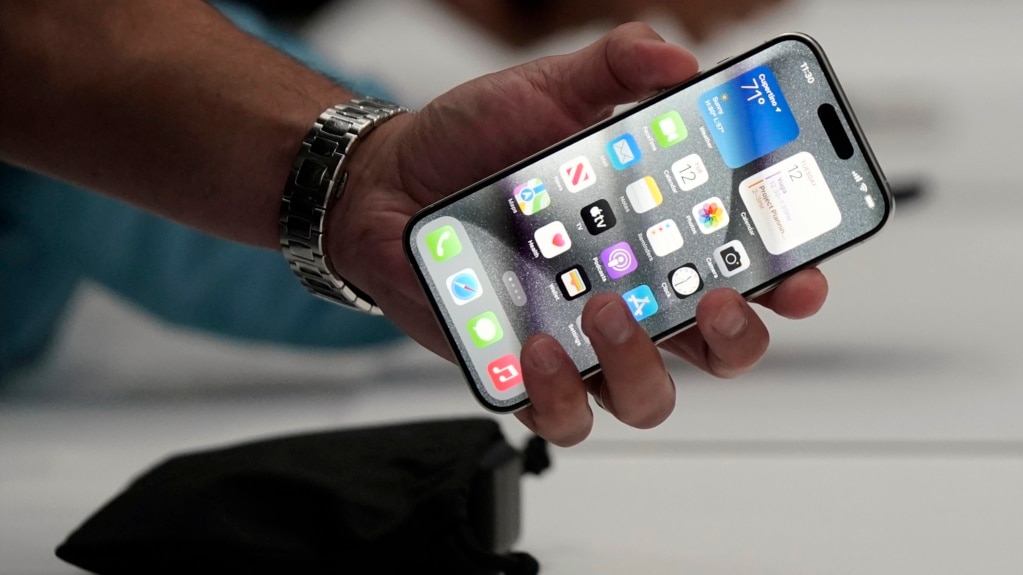Many people are now holding onto their smartphones longer than in the past. This is true for several reasons. The cost of phones has been rising for years. And device updates are no longer as meaningful as before.
This has made it even more important for smartphone users to take good care of their devices. But how long can a smartphone user expect their device to last? Many experts say if they are cared for effectively, phones can last up to five years, possibly even longer.
Chris Hauk is a technology expert with the website Pixel Privacy. He told The Associated Press (AP), “As long as you take care of your phone and keep it updated, you’re going to get at least four or five good years of use out of it."
The AP offers these additional tips for smartphone users looking to keep their devices for as long as possible.
Battery care
One of the most important elements affecting smartphone life is the battery.
iPhone maker Apple says a rechargeable battery’s age has little to do with when it was manufactured. Instead, it depends on a complex mix of things, including temperature and charging history. “As lithium-ion batteries chemically age, the amount of charge they can hold diminishes, resulting in reduced battery life and reduced peak performance,” Apple says.
Samsung, which uses the Android operating system in its smartphones, says its lithium-ion batteries perform best when kept above a 50 percent charge. The company advises against running the battery completely down
In an online guide, Samsung also said that repeatedly letting the battery go to zero percent may shorten its life and decrease overall performance. “If this happens, you’ll need to charge the battery more frequently and it may last only a few hours before needing a charge.”
Avoid extreme temperatures
Apple says its batteries already warm up as they charge, so phones should not be charged in very hot temperatures. Charging an iPhone in heat above 35 degrees Celsius, for example, “can permanently reduce battery lifespan.”
Samsung also says extreme heat or cold can damage batteries. It warns users not to leave their phones inside vehicles or other contained spaces in very hot or cold weather.
Google created the Android operating system and makes Pixel smartphones. It warns that hot batteries lose power faster, even when not being used.
Change your power settings
Look at changing your smartphone settings so apps and other device operations use less power. Doing this can extend your battery’s daily life and give more time between charges.
Examples include turning down the phone’s screen brightness, changing to a dark theme and making the screen power off sooner. You can also look at battery usage in the device’s settings to identify power-hungry apps that can be turned off or removed.
Also, if an iPhone’s power level drops below 10 percent, users can turn on the low power setting to stretch battery life before the next charge. Android phones have a similar “power saving mode.” But while this setting can be left on all the time, experts say doing so can affect the phone's overall performance.
Samsung says another power-saving move is to turn off Bluetooth or Wi-Fi when they are not being used. Apple, however, advises iPhone users to leave these on because they use very little power when not connected.
Use protection
Many smartphone users already know the benefits of using screen protectors and device cases. Experts advise not using plastic versions, which can damage the phone’s face. Device website iFixit suggests choosing ones made with either Thermoplastic polyurethane (TPU) material – which combines both plastic and rubber – or tempered glass. Both offer more solid protection.
Keep your device clean
Smartphones can collect dirt and other materials that can block port openings and hurt performance. Experts say a toothpick or toothbrush can be used to get rid of much of these substances. But they advise users to make sure the process is removing the material, not pushing it deeper inside.
Update your device
Software is another important part in extending a phone’s lifespan. Experts suggest downloading the latest operating system updates often. This will limit problems related to the device’s privacy, security and battery operations.
I’m Bryan Lynn.

